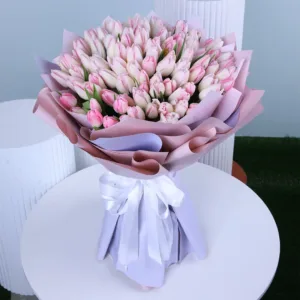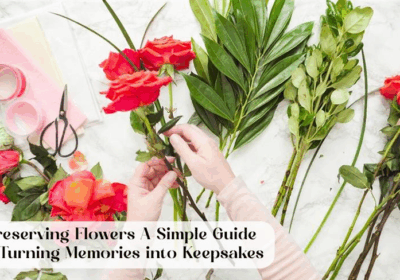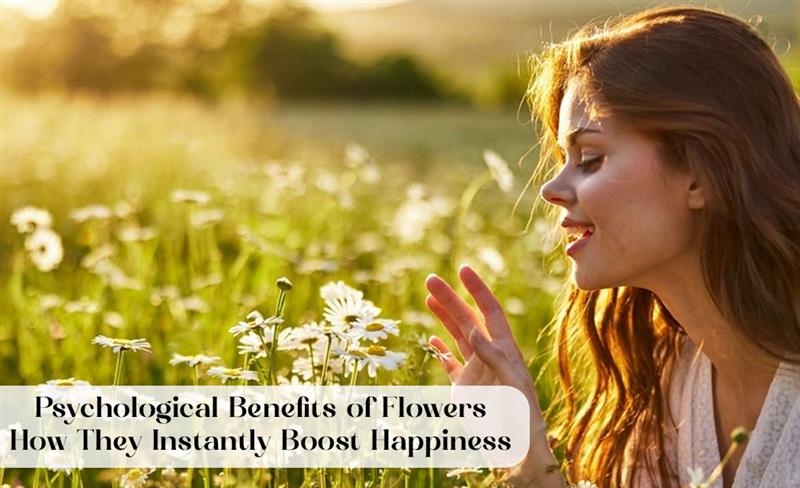
Psychological Benefits of Flowers – How They Instantly Boost Happiness
Have you ever wondered why flowers have been cherished for centuries?
It’s not just their beauty that captivates you – flowers hold a deep emotional and psychological significance.
Can simply placing flowers in a space make a difference?
Absolutely! Whether it’s a home, office, or healing environment, flowers can elevate your mood, reduce stress, and create a calm, peaceful ambience.
Do you know some flowers have healing powers and a natural remedy for mental health?
Many scientific researchers have reached the same conclusion.
In this blog, let us explore
- the psychological benefits and emotional impact of flowers
- how they can improve mental health.
What is the Science Behind the Emotional Impact of Flowers?
The emotional impact of flowers is not just a cultural belief; it is backed by science. Studies show that flowers trigger positive emotional responses, helping to reduce stress and anxiety.
According to the Journal of Environmental Psychology article titled “Viewing a Flower Image Provides Automatic Recovery Effects After Psychological Stress,” looking at a flower image can reduce negative emotions, lower blood pressure, and decrease cortisol levels.
Source:
How Flowers Influence the Brain
- Boosts Dopamine and Serotonin: Receiving or even looking at flowers releases dopamine and serotonin, the “feel-good” chemicals in the brain.
- Reduces Cortisol Levels: The presence of flowers in homes and workplaces lowers cortisol, the stress hormone, promoting relaxation.
- Enhances Memory and Cognition: Flowers stimulate cognitive function, improving focus and memory retention.
Psychological Benefits of Flowers
1. Flowers Make You Happy and Less Anxious
Flowers can induce happy feelings and instant happiness. Bright colours, beautiful fragrances and flowers are a positive experience and will reduce anxiety.
2. Flowers Fight Depression
Flowers have a big impact on the people who are depressed. The addition of flowers to your home, office, or any space can enhance hope and can help in promoting emotional well-being.
3. Flowers Grow Relationships
Gifting flowers strengthens relationships and make your loved ones feel special on a memorable day. Sharing and receiving flowers promotes gratitude and affection, which are essential for emotional well-being.
4. Flowers Boost Productivity and Creativity
How about imagining a workplace filled with fresh flowers? Amazing, isn’t it? Many studies show that flowers in the workspace boost creativity, concentration, and productivity. The natural ambience of flowers makes people feel more inspired and engaged.
A Texas A&M University study confirmed that flowers and plants enhance productivity, creativity, and problem-solving in the workplace. Exposure to flowers reduces anxiety, boosts energy, and fosters innovative thinking. The research found that men generated 30% more ideas, while women developed more creative, flexible solutions in flower-filled environments.
Flowers That Convey Love and Positivity
Sunflowers
The cheerful appearance of sunflowers symbolizes happiness, positivity, and longevity. These bright blooms are the best choice for celebrating special occasions and sharing joy.
Roses
Roses are the ultimate symbol of love and romance. Yellow roses are the best choice to convey your happiness and appreciation to your loved one.
Daisies
Daisies represent innocence, purity, and new beginnings. Their simple yet elegant appearance brings a sense of joy and freshness.
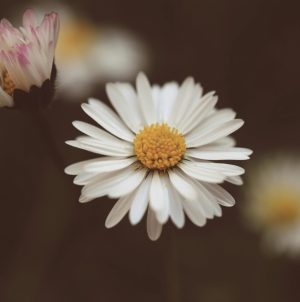
Tulips
Tulips are often associated with love and springtime. They symbolize perfect love and are a favourite for expressing deep emotions.
Flowers Associated with Mental Health
Lavender
Lavender, with its soothing fragrance, is often associated with calmness and relaxation. It is commonly used in aromatherapy and helps to improve restlessness, disturbed sleep and somatic complaints.
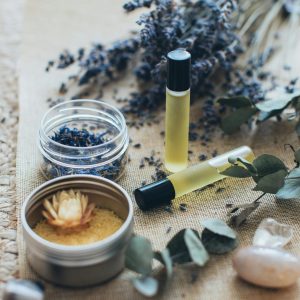
Chamomile
Chamomile flowers have calming properties and are often used in teas to reduce stress and promote relaxation.
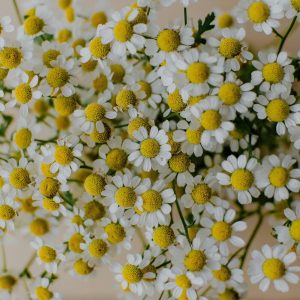
Jasmine
Jasmine – the scent flowers are known for their sweet fragrance, which can help reduce anxiety and promote a sense of well-being.

Lotus
The lotus flower symbolizes purity, enlightenment, and overcoming obstacles. It is also believed that it increases strength, resilience, and rebirth in people with mental health issues.

Why Do Flowers Make Us Happy?
Flowers have a unique ability to make us happy, and this can be attributed to several factors.
Aesthetic Pleasure
The beauty of flowers provides aesthetic pleasure, enhancing a positive environment making the ambience more pleasant. The petal arrangements and patterns in flowers provide calming effects and activates our brain.
Scent and Memory
The aroma of flowers can evoke memories and emotions can recollect our memories and comfort.
Symbolic Meanings
Flowers carry symbolic meanings that can enhance their emotional impact. For example, receiving roses may evoke feelings of love and appreciation.
Nature’s Gift
Flowers remind us of the beauty and abundance of nature. This connection to the world of nature can promote feelings of gratitude and happiness.
The Natural Healing Power of Flowers
We know that flowers have been used for their healing properties for many centuries. Here are some ways flowers can promote healing and well-being.
Aromatherapy
Essential oils extracted from flowers like lavender (Lavandula angustifolia oil), rose (rose otto), and jasmine (Jasmine oil – the high priced essential oil) are used in aromatherapy. You can inhale the aroma of these blooms through oil diffusers or go for a facial steam.
Herbal Remedies
Flowers like chamomile and calendula are used in herbal medicine to treat digestive issues and treat skin conditions.
Do you know? An essential oil made from the extracts of chamomile flowers can reduce the diaper rashes in babies.
Flower Essences
Flower essences (flower remedies) are liquid extracts made from flower’s energy. They are made by infusing flowers in spring water, exposing them to sunlight or boiling, then filtering and preserving the essence with brandy. These essences can deal with emotional and mental imbalances.
Horticultural Therapy
Engaging in gardening and caring for flowers can have therapeutic benefits. Horticultural therapy involves gardening activities with a therapist and can enhance a person’s body, mind, and spirit.
How Flowers Help in Improving Mental Health
- Connection to Nature: Flowers bring a touch of nature into our indoor spaces, helping us feel more connected to the natural world. This connection can reduce feelings of loneliness and promote a sense of well-being.
- Mindfulness and Presence: Caring for flowers and observing their growth encourages mindfulness (an act of being aware of the present). This practice can reduce stress and helps you focus on things without distraction.
- Positive Distraction: Flowers provide a positive distraction from negative thoughts and worries. Their beauty and fragrance can change our focus towards more positive and uplifting experiences.
- Symbol of Hope and Renewal: Flowers often symbolize hope and renewal, especially when we are going through hard situations. Their blooming cycle reminds us of the potential for growth and transformation in our own lives.
Best Flowers for Relieving Stress
- Lavender: As mentioned earlier, lavender’s soothing fragrance makes it an excellent choice for reducing stress and promotes calmness and wellness.
- Rosemary: Rosemary has a refreshing scent that can help alleviate stress and improve concentration.
- Peppermint: The invigorating scent of peppermint flowers can boost energy levels and reduce feelings of stress and fatigue.
- Geranium: Geranium flowers have a calming effect and are often used in aromatherapy to reduce the heart rates when working with stressful tasks.
Boost You Happiness with Blooms!
Psychological Benefits of Flowers | FAQs
1.Can flowers really improve mental health?
Many studies have shown that flowers can have a positive impact on mental health. They can reduce stress, improve mood, and promote relaxation.
2.How do flowers reduce stress?
Flowers can reduce stress through their visual appeal and soothing fragrance create a calming environment and provide a positive distraction from stressors.
3.What are some flowers known for their healing properties?
Flowers like lavender, chamomile, jasmine, and calendula have the best healing properties and are used in aromatherapy and herbal remedies.
4. How can I incorporate flowers into my daily life for better mental health?
You can incorporate flowers into your daily life by keeping fresh flowers at home, using essential oils in a diffuser, drinking herbal teas made from flowers, and engaging in gardening.



